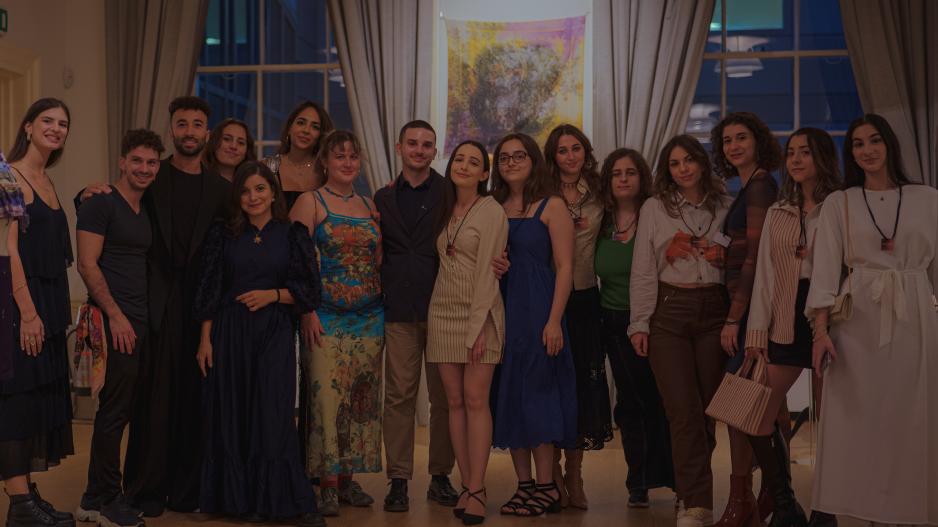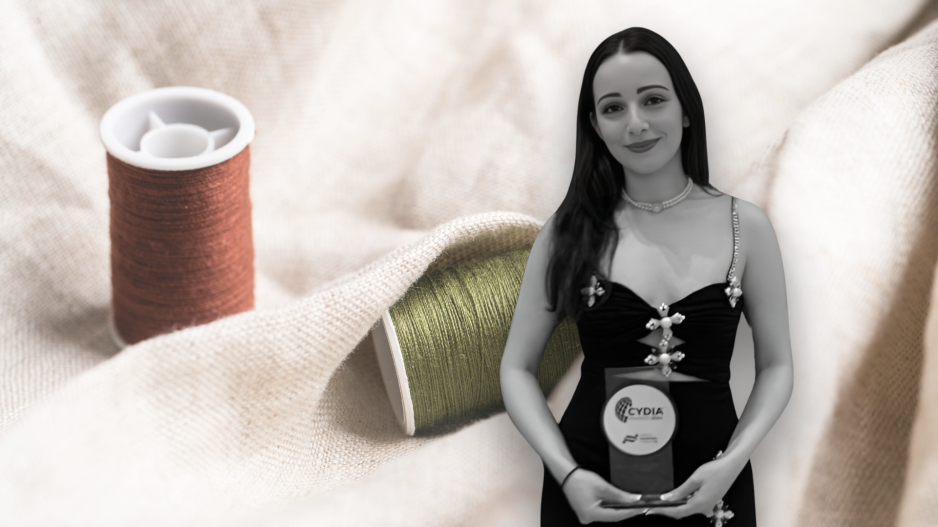Christina Dymiotis on Bridging Cypriot Fashion Heritage with Sustainable Design
An Interview with the FHNC Leader and Strong Advocate for Sustainable Fashion
Christina Dymiotis, an advocate for sustainable fashion, is at the forefront of integrating Cypriot fashion heritage with contemporary, eco-friendly design.
In this interview, she sheds light on her role within the Fashion Heritage Network Cyprus (FHNC), highlighting the network’s initiatives to preserve and modernize Cypriot fashion traditions. Christina also discusses the impact of her background in digital marketing and event planning on the success of FHNC’s projects, the challenges faced in promoting sustainability in Cyprus, and her vision for the future of sustainable fashion on the island.
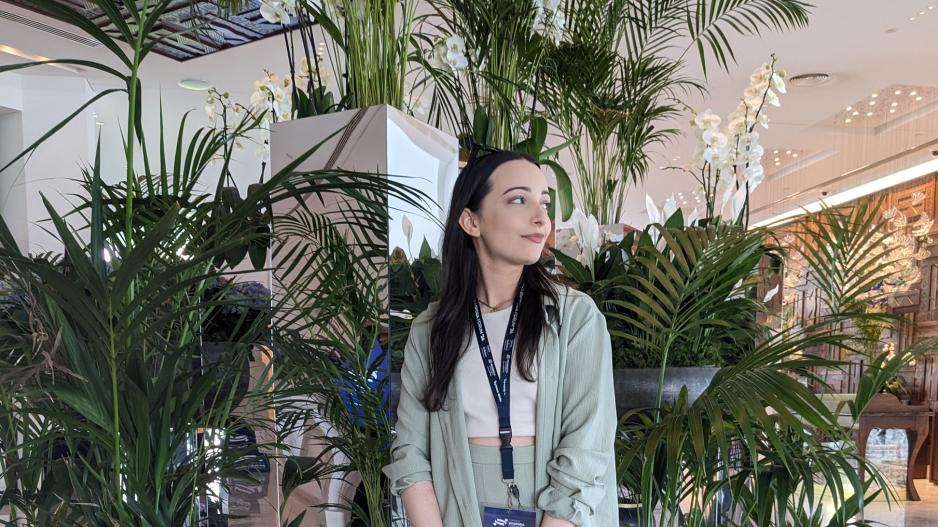
Fashion Heritage Network Cyprus is a pioneering inter-communal youth platform committed to preserving the rich heritage of Cypriot fashion through sustainable and contemporary designs. The network aims to impact both the fashion industry and our community positively.
The network aims to reintroduce traditional garments, techniques and materials with innovative twists to incorporate contemporary needs and choices
The FHNC is Cyprus's first fashion sustainability project which celebrates and revives our islands’ important cultural heritage. Demonstrably, the FHNC was founded with the aim of preserving and celebrating Cyprus’ fashion heritage, cultural practices, crafts and techniques. Cypriot fashion heritage is unique, consisting of elements from various periods of history and influences from neighbouring regions and the minorities that live on the island today. The network aims to reintroduce traditional garments, techniques and materials with innovative twists to incorporate contemporary needs and choices. For example, we encourage our creatives to put a modern twist on traditional Cypriot fabrics, such as alatzia and sayia, and traditional Cypriot embroidery techniques, such as lefkatiktio, argalio and finotiko etc. For example, we recently organized the first ever intergenerational workshop between artisans and our fashion designers in collaboration with UNFICYP. This was a very wholesome and insightful event where our team got the chance to learn Cypriot traditional craftsman techniques from professionals. We believe that you are able to see this intermingling of past and present in their designs which are showcased in our upcoming fashion show during the Cyprus Fashion Film Festival Cyprus.
The Cyprus Fashion Film Festival aligns perfectly with our mission at Fashion Heritage Network Cyprus to promote young talent, creativity and our culture. This festival provides an exceptional platform for emerging Cypriot designers to showcase their talents on an international stage, fostering collaboration and creativity within the fashion community. By merging fashion with film, CFFF not only highlights the aesthetic and cultural richness of Cyprus but also promotes eco-conscious design, reflecting our commitment to sustainability. We believe that CFFF will significantly contribute to the Cypriot fashion scene by spotlighting local talent, encouraging artistic exchange, and reinforcing Cyprus’s position as a vibrant hub of creative innovation.
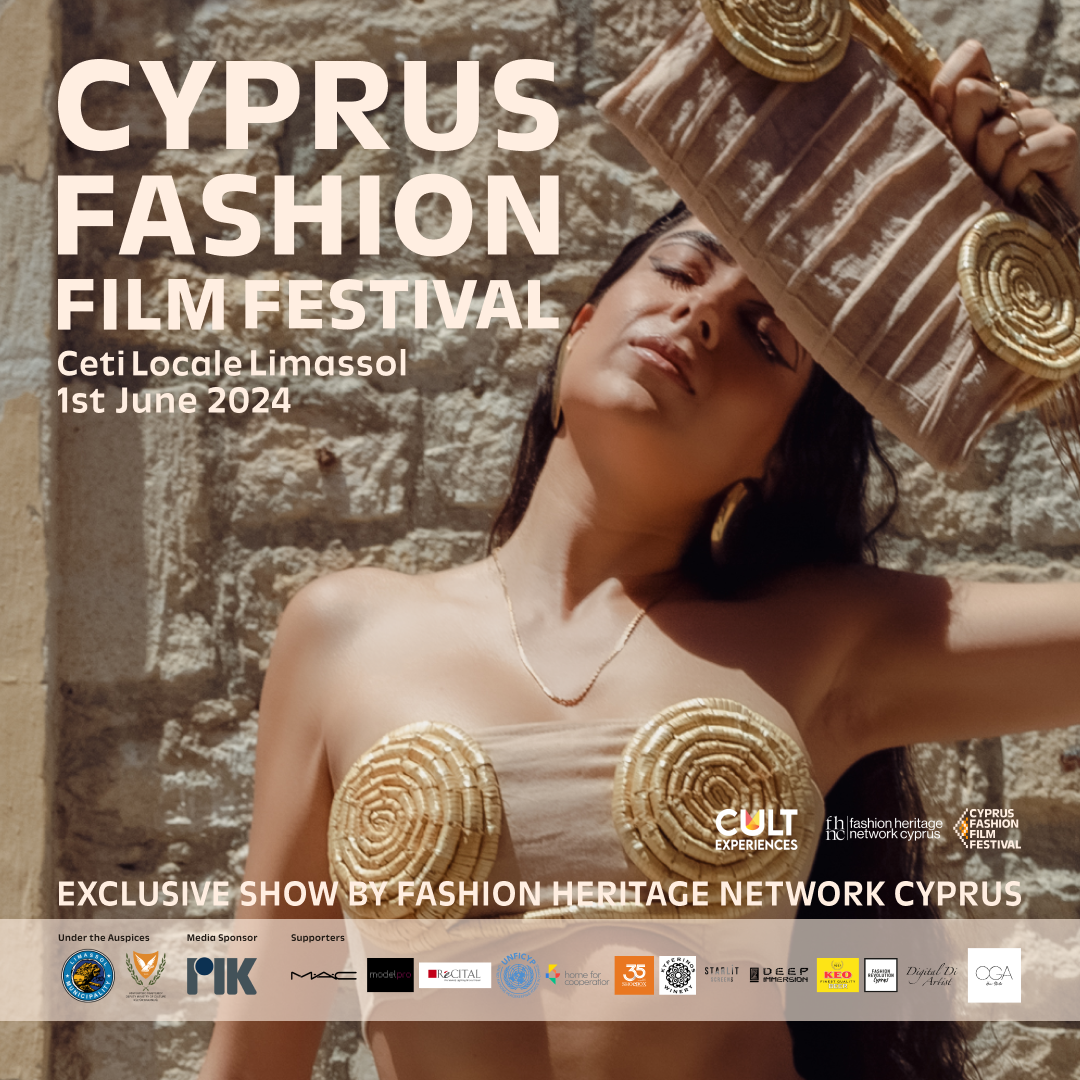
Fashion Heritage Network Cyprus believes that fashion sustainability should be a primary objective in our everyday lives and the fashion sector. The fashion industry is one of the most polluting industries, producing 92 million tons of clothes-related waste each year and half a million tons of microplastics. It is our duty to tackle this problem. Fashion sustainability is deeply embedded in Cypriot heritage, with traditional techniques like reusing, repairing, and mending. Historically, Cypriots appreciated what they wore, with craftsmen and local women repairing clothes and shoes, supporting the local economy. We celebrate this sustainable past and combine it with cutting-edge innovation, shifting our community toward ethical consumerism and pushing sustainable fashion into the mainstream in Cyprus. We create environmentally friendly and zero-waste designs, believing in Dame Vivienne Westwood’s saying, ‘buy less, buy better, make it last.’ If our ancestors were sustainable, why can’t we be too?
FHNC hosts clothes swaps, second-hand bazaars, and educational panels and workshops focusing on fashion sustainability in collaboration with Fashion Revolution Cyprus. We aim to increase public awareness of sustainability and cultural heritage by participating in events and conferences, creating educational online content, and hosting interactive workshops like the ones this weekend, which you can sign up for via our website. Through education and youth participation, we believe we can create a real impact on the island and in our communities.
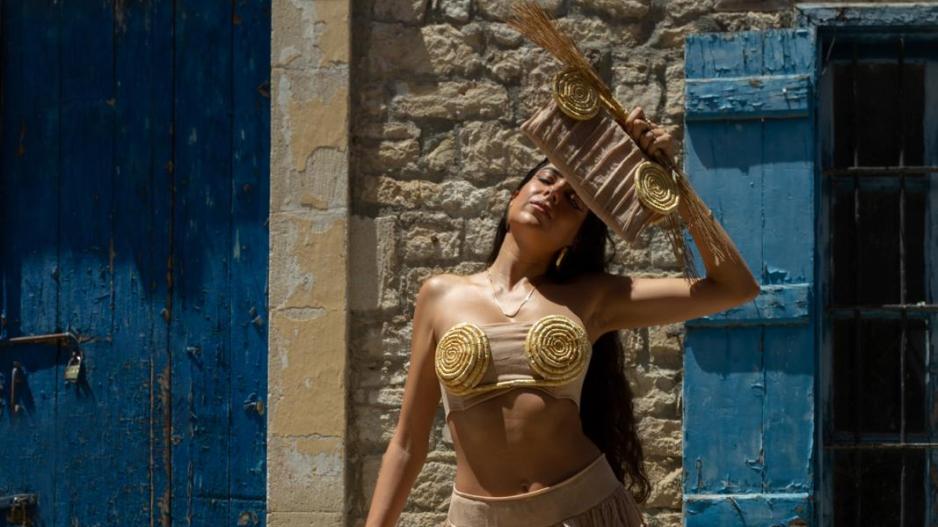
Şüküfe Emirtaneoğlu, a visual artist and floral designer, draws inspiration from vernacular architecture, particularly the adobe buildings of Cyprus. She highlights the eco-friendly and cost-effective nature of adobe, using its textured surfaces to inform her textile designs. Şüküfe chooses linen for its resemblance to plaster and incorporates natural materials like wires, wool, palm, and wheat branches, along with fabrics inherited from her grandmother. As an architect, she maintains visual balance in her creations, blending architectural and woven elements to produce unique, eco-conscious wearable art that celebrates traditional building techniques' enduring beauty and modern sustainability.
Rengin Ackan, a fashion designer, is inspired by the grandeur of Ionic columns in Cypriot architecture. Her collection translates the Ionic order's powerful aesthetic into unique fashion pieces, honoring historical sites and their significance. Using primarily natural fabrics and adhering to a no-waste policy, Rengin creates designs that harmonize with the environment. Her first outfit features a top made from straws, reminiscent of traditional Cypriot straw mats, showcasing a blend of traditional craftsmanship and contemporary fashion. Rengin's work reflects a deep understanding of Cyprus's rich history, embracing its diverse cultural influences while emphasizing sustainability and cultural heritage in her innovative designs.
My background in Digital Marketing and Event Planning/Coordination, coupled with my six years of experience in these fields, has been instrumental in the success of Fashion Heritage Network Cyprus initiatives and events. With a Master's in Marketing Management from the University of Sheffield, I have effectively promoted fashion exhibitions in both the UK and Cyprus, increasing visibility and engagement through targeted social media campaigns and email marketing. This has significantly boosted attendance and participation.
In event planning and coordination, my experience has ensured seamless execution of workshops, panel discussions, and other events. I have managed logistics, vendor relations, and participant coordination, creating well-organized and impactful experiences. My skills in audience analysis and engagement have helped tailor events to meet the interests and needs of diverse audiences, enhancing the overall impact and reach of our initiatives. This holistic approach, combined with the skills and knowledge I acquired while studying and working in the UK, has been vital in building a strong community around Fashion Heritage Network Cyprus, fostering connections, and celebrating our shared cultural heritage through fashion. I am enthusiastic about using my expertise to help FHNC grow and have a greater impact on the community.
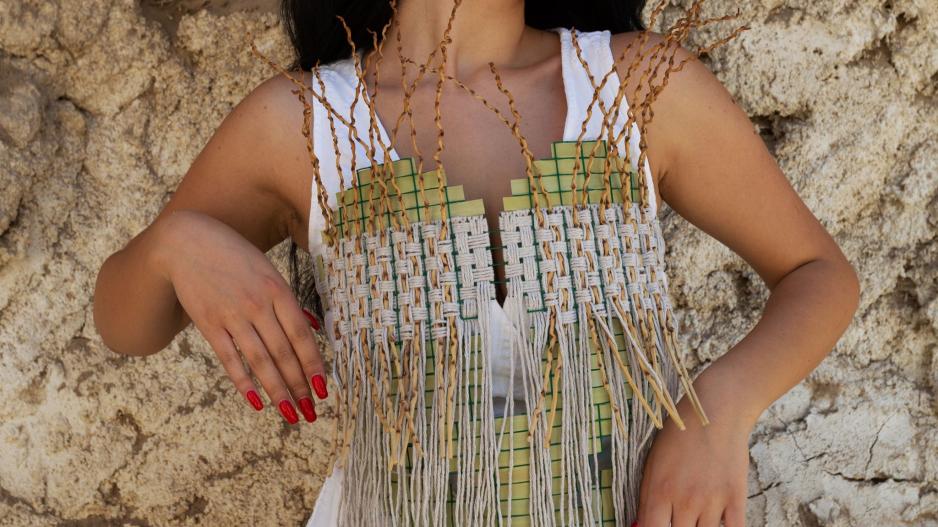
One of the most significant challenges I have faced while leading sustainability projects in Cyprus is the lack of knowledge regarding sustainable fashion. In Cyprus, many people prefer buying from international fast fashion brands rather than supporting slow fashion and local brands. The Fashion Heritage Network Cyprus acknowledges that the fashion industry is one of the most polluting industries in the world, due to unethical overproduction which has a negative environmental impact on the planet. To combat this, the FHNC takes proactive measures to minimize its environmental footprint. Our designers and artists create garments using second-hand materials and implement zero-waste fashion design techniques.
By drawing on traditional Cypriot practices of reuse, repair, and upcycling, we demonstrate the tangible benefits of sustainable fashion
One key element of FHNC is adapting fashion sustainability techniques that are part of the island's heritage, such as upcycling and using sustainable natural materials. This approach could inspire the fashion industry, not only in Cyprus but globally, offering solutions to the prevalent issue of fashion waste. FHNC aims to educate the local community about the environmental impact of fashion and encourage mindful purchases and proper clothing care. For instance, we recently hosted a workshop on upcycling unwanted t-shirts and using natural dyes from local fruits and vegetables to give clothes a second life. By drawing on traditional Cypriot practices of reuse, repair, and upcycling, we demonstrate the tangible benefits of sustainable fashion, enhancing a collective movement towards a more responsible and environmentally conscious industry.
As an award-winning social entrepreneur, I envision a future where sustainable fashion in Cyprus thrives, leading by example in environmental and social responsibility. The Fashion Heritage Network Cyprus will play a pivotal role in this transformation. Addressing the significant environmental impacts of fashion, such as water pollution, waste generation, and greenhouse gas emissions, FHNC promotes sustainable practices like upcycling, zero-waste design, and using second-hand materials to conserve natural resources and protect the environment.
FHNC also hopes one day to collaborate with educational institutions, to integrate sustainability into the curriculum, empowering future fashion professionals to drive industry-wide change. This approach meets the growing market demand for eco-friendly and ethically produced clothing while preserving and promoting Cyprus's unique fashion heritage.
Our initiatives, including the REVIVE exhibition and workshops on upcycling and natural dyeing, educate the community about the environmental impact of fashion and encourage mindful consumption. Additionally, FHNC supports local talent and fosters collaboration through partnerships like the inter-communal fashion business networking program with UNFICYP. By embracing sustainability, technology, collaboration, and creativity, FHNC positions Cyprus as a hub for innovative and contemporary fashion, contributing to a more sustainable and prosperous future for the industry.
